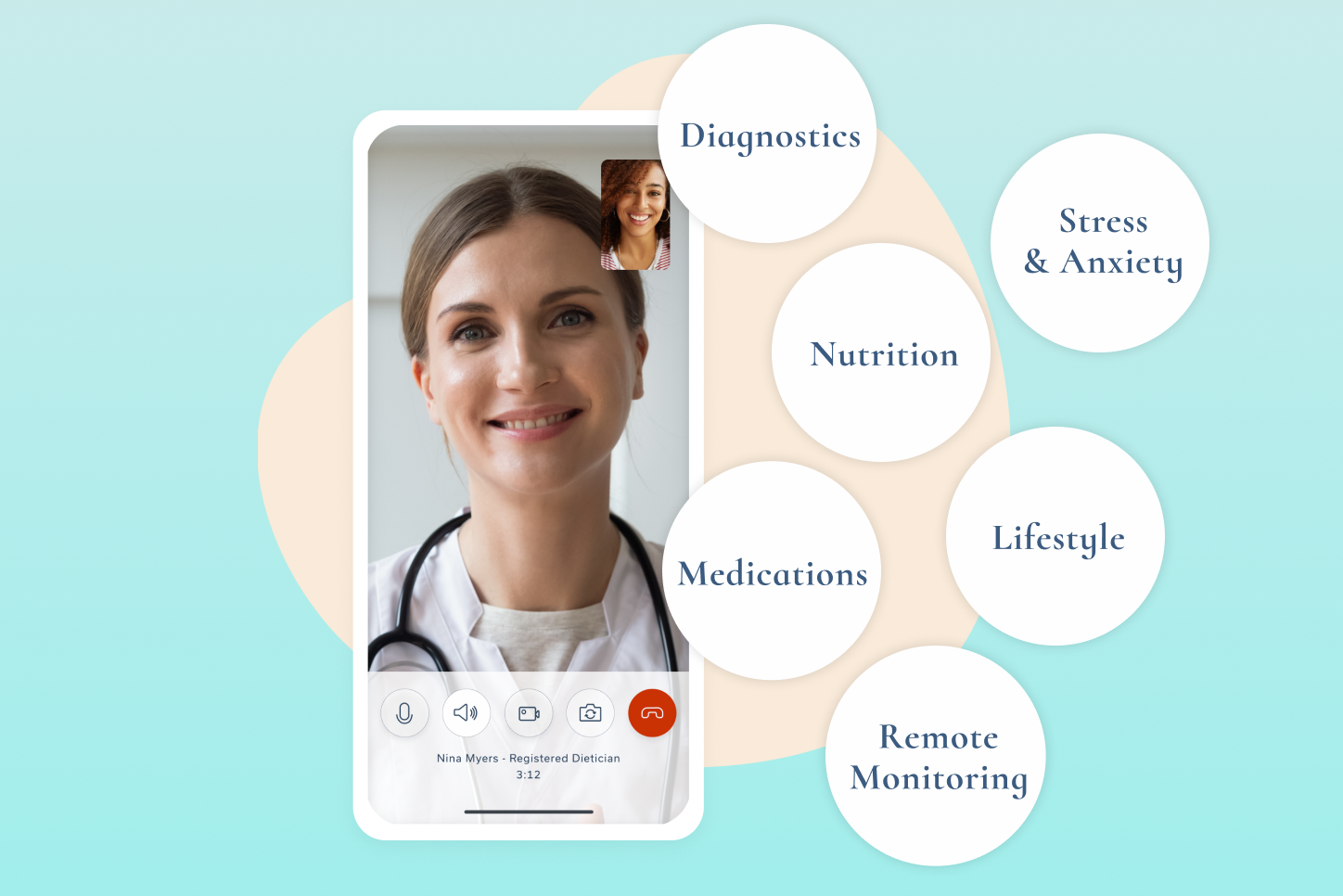
Oshi Health built a digital health platform to help people manage GI conditions at home. Photo credit: Oshi Health
Among a surge of digital health tools, from digital programs for managing diabetes to apps that connect people with therapists, there’s one area that has garnered less attention — gastrointestinal conditions.
Oshi Health CEO Sam Holliday is familiar with this after seeing family members with GI conditions struggle to get the support they needed. So in 2019, he became CEO of the New York-based digital health startup that offers app-based access to GI specialists, coaching and nutrition support.
A panel of judges recently selected the New York City-based startup as the winner of the health services track for MedCity INVEST’s Pitch Perfect contest.
“It’s a stigmatized area,” Holliday said. “So many people go undiagnosed. It takes two to four years to get a diagnosis.”
Even with a diagnosis, navigating these health conditions can be a frustrating experience. In interviews of people with irritable bowel syndrome (IBS), many told him they would get referred to a gastroenterologist, who would hand them a packet of information about a low-FODMAP diet or write them a prescription with mixed chances of success.
“That’s just left all of these people with IBS floating in the system,” he said. “There are many active communities online of people trying to compare notes, but it’s really individualized as to what triggers their symptoms. People really need help with this.”

A Deep-dive Into Specialty Pharma
A specialty drug is a class of prescription medications used to treat complex, chronic or rare medical conditions. Although this classification was originally intended to define the treatment of rare, also termed “orphan” diseases, affecting fewer than 200,000 people in the US, more recently, specialty drugs have emerged as the cornerstone of treatment for chronic and complex diseases such as cancer, autoimmune conditions, diabetes, hepatitis C, and HIV/AIDS.
Holliday knows this well. His mother, who was diagnosed with IBS, went through this same journey. Even taking a methodical approach to managing her health and nutrition, it could still be challenging.
“Even then a couple of times she’s landed in the emergency room, talking to her after the fact, we realized it was stress,” he said.
Before, Oshi had been designed as an app for people to self-manage GI conditions. But seeing more companies build virtual programs that incorporated coaching and nutrition, Holliday thought it could be helpful to do the same.
“All of the things that we know work are very conducive to telehealth interventions,” he said. “It’s about understanding your triggers and coming up with a plan of how to minimize the impact.”
Oshi gives users access to a virtual care team, including a gastroenterologist, dietician, psychologist, health coach and a care coordinator. They work to make a care plan for users, and have the ability to order labs and diagnostics, and write prescriptions.
The company currently operates in Pennsylvania and Florida, and is expanding into Texas. Oshi is primarily working with employers and insurance companies to offer its service as a covered benefit. It’s currently working with one unnamed health plan to study the effect of its program on members’ quality of life, symptoms, cost and utilization.
“The interesting part that we’ve learned as we’ve gone out talking to health plans and employers is the low awareness of the needs. GI is where mental health was 5 or 6 years ago,” Holliday said. “If you’re just running claims data, you’re actually missing a big part of the population who’s suffering. Interestingly, more and more employers are saying now, I’m seeing GI costs pop up… but I haven’t really had anything to do about it before.”
As the startup raises funding, Holliday is looking to build the infrastructure for Oshi to expand across the U.S.
“It’s an emerging area still, but it’s starting to hit more radars and gain more awareness,” he said.
Photo Credit: Hiraman, Getty Images













